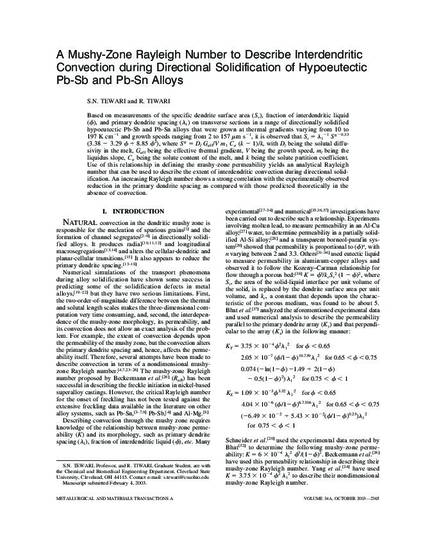
Based on measurements of the specific dendrite surface area (S-nu), fraction of interdendritic liquid (phi), and primary dendrite spacing (lambda(1)) on transverse sections in a range of directionally solidified hypoeutectic Pb-Sb and Pb-Sn alloys that were grown at thermal gradients varying from 10 to 197 K cm(-1) and growth speeds ranging from 2 to 157 mum s(-1), it is observed that S-nu = lambda(1)(-1) S*(-0.33) (3.38 - 3.29 phi + 8.85 phi(2)), where S* = D-l G(eff)/V m(1) C-o (k - 1)/k, with D-l being the solutal diffusivity in the melt, G(eff) being the effective thermal gradient, V being the growth speed, m(l) being the liquidus slope, C-o being the solute content of the melt, and k being the solute partition coefficient. Use of this relationship in defining the mushy-zone permeability yields an analytical Rayleigh number that can be used to describe the extent of interdendritic convection during directional solidification. An increasing Rayleigh number shows a strong correlation with the experimentally observed reduction in the primary dendrite spacing as compared with those predicted theoretically in the absence of convection.
Available on publisher's site at: http://www.asminternational.org/portal/site/www/AsmStore/ProductDetails/?vgnextoid=8a009163991e5210VgnVCM100000621e010aRCRD.
